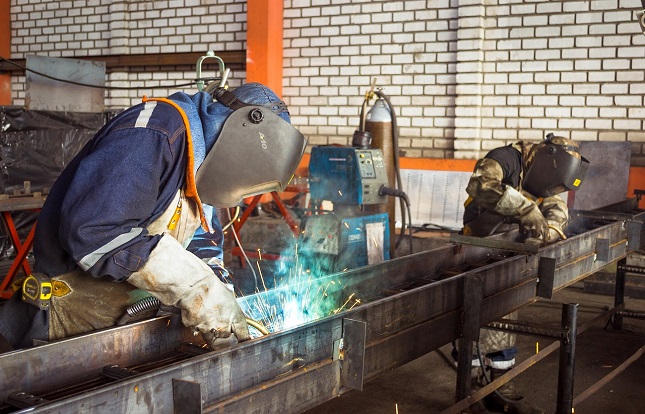In today’s competitive manufacturing landscape, businesses must constantly seek ways to optimize their production processes, improve product quality, and reduce costs. One of the most effective ways to overcome manufacturing hurdles is through the use of custom welding solutions. These specialized welding techniques can solve complex production challenges, enhance efficiency, and create more durable products. Whether you’re dealing with intricate designs, precision requirements, or high-volume production, custom welding offers the flexibility and innovation needed to meet modern demands.
Why Custom Welding Solutions Are Essential in Manufacturing
Custom welding solutions play a vital role in overcoming specific challenges that arise in manufacturing environments. Each industry and product has unique requirements, whether it’s precision, material compatibility, or the need for specific strength and durability. Standard welding methods often fall short when dealing with complex designs or specialized materials, which is where custom solutions come into play.
Take laser beam welding, for instance. This technique is particularly useful for industries that require high precision and minimal distortion, such as the aerospace or automotive sectors. If you’re exploring advanced welding options, you can learn more here about laser beam welding service providers, which offer tailored solutions for delicate and demanding applications. By opting for custom welding services, manufacturers can achieve higher accuracy, improved strength, and reduced waste in their production processes.
Addressing Material Compatibility Issues
One of the most common challenges in manufacturing is ensuring material compatibility. Different metals and alloys often have distinct melting points, properties, and structural limitations, making it difficult to join them using standard welding techniques. Custom welding solutions, however, can address these issues by tailoring the welding process to suit the specific characteristics of the materials being used.
For example, materials like aluminum, stainless steel, and titanium all require different approaches to welding due to their thermal conductivity and strength properties. Custom solutions such as TIG (Tungsten Inert Gas) welding or laser welding can be designed to handle these materials, ensuring that they are welded together without compromising the structural integrity of the finished product. This capability is especially crucial in industries like medical device manufacturing, where the safety and performance of the product rely heavily on the precision and quality of the welds.
Improving Production Efficiency and Reducing Costs
Another major hurdle in manufacturing is maintaining efficiency while controlling costs. Standard welding methods can sometimes lead to higher rates of defects, slower production times, and increased material waste, all of which drive up the cost of production. Custom welding solutions are designed to streamline the welding process, making it faster, more accurate, and less wasteful.
By utilizing automated welding systems or robotics in combination with custom welding techniques, manufacturers can significantly reduce the time it takes to complete each weld. Automation ensures consistency, reduces human error, and allows for continuous production without the need for frequent stops or adjustments. This not only speeds up production but also lowers the overall cost by minimizing rework and material loss.
Custom welding solutions can be tailored to handle high-volume production runs, ensuring that manufacturers can meet demand without sacrificing quality. In industries like automotive manufacturing, where thousands of components need to be welded with precision, these solutions provide the reliability and efficiency necessary to keep production lines moving smoothly.
Enhancing Product Durability and Performance
Product durability is another critical factor in manufacturing, particularly in industries such as aerospace, automotive, and heavy machinery. The quality of the weld directly impacts the strength and lifespan of the final product. Poor welds can lead to structural weaknesses, which may result in product failure, costly recalls, or even safety hazards. Custom welding solutions are designed to ensure that the welds meet specific strength and performance requirements.
For instance, in the construction of aircraft components, every weld must be able to withstand extreme stress and environmental conditions. Custom welding techniques such as electron beam welding or friction stir welding are often employed in these cases to create welds that are not only strong but also resistant to corrosion and fatigue. These techniques are highly specialized and offer superior results compared to traditional welding methods, making them invaluable in industries where product performance is non-negotiable.
Supporting Sustainability Initiatives
Sustainability is becoming an increasingly important consideration for manufacturers, and custom welding solutions can play a significant role in supporting environmentally friendly practices. Traditional welding methods can produce excess waste, consume large amounts of energy, and result in higher emissions due to inefficiencies in the process. Custom welding, on the other hand, can be optimized to minimize waste and energy usage.
Laser welding, for example, is a highly efficient process that uses focused energy to create precise welds, resulting in less material waste and lower energy consumption compared to conventional welding techniques. By adopting more sustainable welding practices, manufacturers can reduce their environmental impact while also benefiting from cost savings associated with reduced material use and energy consumption. This approach not only aligns with global sustainability goals but also enhances the reputation of the company as a responsible and eco-conscious manufacturer.
Custom welding solutions are essential tools for overcoming the many hurdles that manufacturers face today. From material compatibility issues to improving efficiency and ensuring product durability, these solutions provide the flexibility and precision needed to meet the demands of modern production. By adopting advanced welding techniques and working with specialized service providers, manufacturers can optimize their processes, reduce costs, and deliver high-quality products that stand the test of time.






































